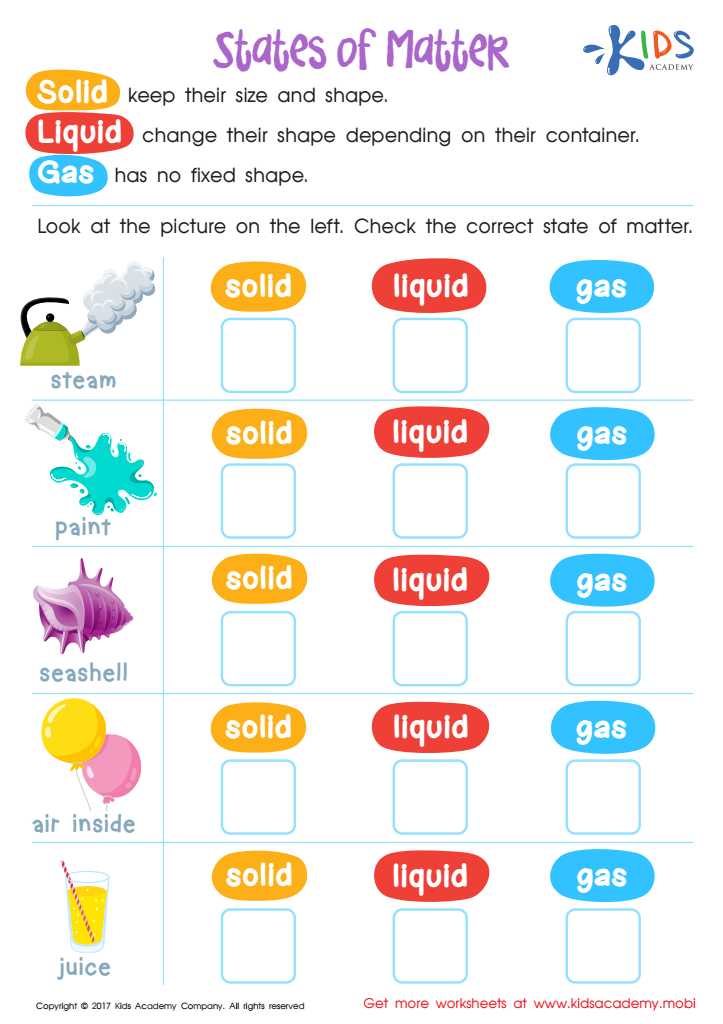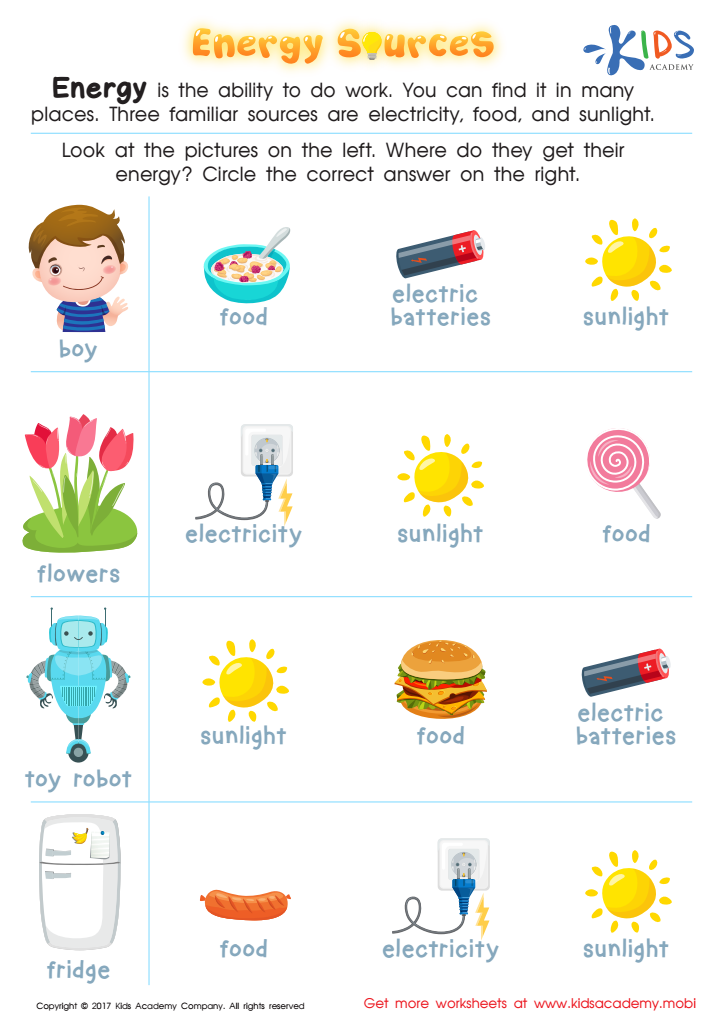Physical Science Worksheets for Ages 6-8
3 filtered results
-
From - To
Our "Physical Science Worksheets for Ages 6-8" offer young learners a fun and engaging way to explore the fundamental principles of physical science. Through these carefully crafted exercises, children will discover the wonders of force, motion, energy, and matter. These worksheets are designed to stimulate curiosity and foster a love for scientific exploration in a developmentally appropriate manner. They combine vibrant illustrations, simple explanations, and hands-on activities to make learning both effective and exciting. Ideal for classroom use or at-home enrichment, our worksheets provide a solid foundation in physical science concepts, ensuring a thorough understanding for young minds. Start downloading today!


Physical Science: States of Matter Worksheet


Sink or Float Printable


Energy Sources Printable
Physical science for ages 6-8 is an essential part of childhood education because it sparks curiosity and builds foundational knowledge. At this young age, children are natural explorers and learners, and introducing them to concepts such as matter, energy, and forces can excite their sense of wonder about the world around them.
By engaging with physical science, children develop critical thinking and problem-solving skills. They learn to ask questions, make observations, conduct simple experiments, and understand cause-and-effect relationships. These abilities are crucial not only for science but for all areas of learning and everyday life.
Understanding basic physical science also fosters a sense of natural curiosity and a love for learning that can last a lifetime. Activities like mixing colors, playing with magnets, or exploring the properties of water are not just fun—they are educational experiences that help children understand complex ideas in tangible ways.
Moreover, early exposure to physical science can lay the groundwork for future STEM (Science, Technology, Engineering, and Mathematics) learning. As technology becomes increasingly central to everyday life, having a basic understanding of science helps prepare children for a future where these skills are invaluable.
In summary, parents and teachers should care about physical science because it builds essential skills, fosters curiosity, and prepares children for a scientifically informed future.

 Assign to My Students
Assign to My Students
















